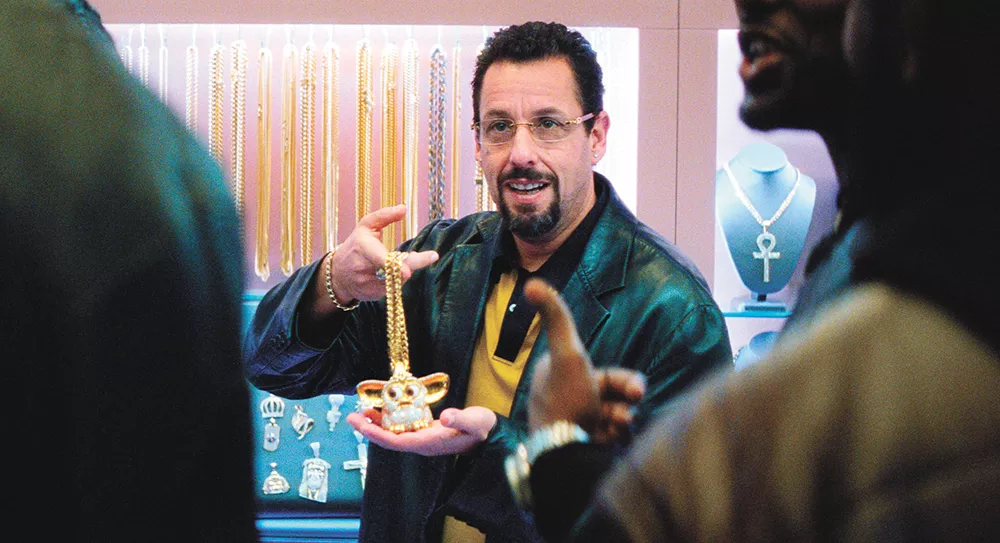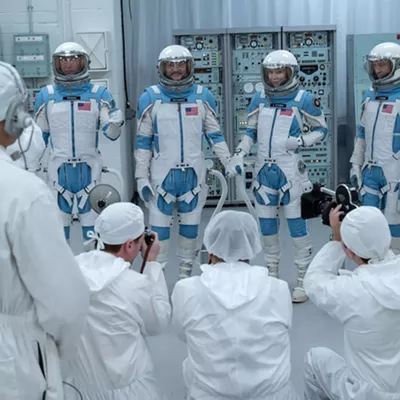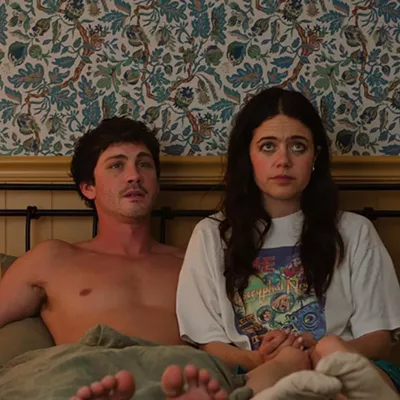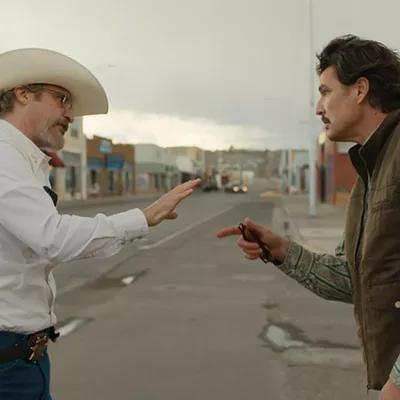Uncut Gems is one of those "his own worst enemy" capers. You know, the kind of movie where you sit there for two hours watching some doofus constantly trip over his own laces — usually figuratively, sometimes literally — on the way to a personal epiphany about how all his bad choices and lack of useful self-awareness have led him to whatever unpleasant place they lead him to.
These movies can be cringeworthy in the protagonist's pathos, either amusingly so or enragingly so. They can engender sympathy or contempt or, ideally, a combination of the two that nevertheless keeps you on his side. It's a tricky mix to get the balance to a place where the audience is walking that fine line with the protagonist, his cockiness leavened by poignancy. You should feel like this guy is probably right to hate himself, but you still want him to win.
Gems directors and co-writers Benny and Josh Safdie pulled off this high-wire act beautifully with their 2017 film Good Time, in which Robert Pattinson's small-time crook engages in an endless doubling-down on appalling decisions, but does so out of a desperate love for a brother who is unable to care for himself. His brain may be malfunctioning, but his heart is in the right place.
The Safdies' follow-up, alas, trades that rough tenderness for unfettered arrogance in the shape of Adam Sandler's Howard Ratner, a New York City dealer in high-end bling. Uncut Gems may come laden with the Safdies' grim arthouse cachet — they previously made a film about heroin and suicide — but this is in every way an Adam Sandler movie. From the title, which suggests the positing of its asshole protagonist as some kind of heroic diamond in the rough, to the presence of an adoring much-younger girlfriend (newcomer Julia Fox) slavishly devoted to Howie for no apparent reason. Howie also has an estranged, age-appropriate wife (Idina Menzel) who screeches at him a lot. She, naturally, is almost as big a villain here as...
Well, no spoilers. We are dragged along here as Howie alternately runs around Manhattan's Diamond District and locks himself in his high-security showroom as he attempts to pull off his biggest score yet: turning the large hunk of raw black opal he has imported from Africa into a larger hunk of cash. His plan involves an auction at a fictional luxury house à la Christie's or Sotheby's, but before he can get there, he has other, smaller deals to make in an ever-escalating series of bad moves. The first involves pawning an item of incredibly sentimental and financial value that is not his to pawn. And when his deals go wrong, as they inevitably do, he has to up the ante on himself, hoping for a bigger payoff on the next one in order to keep the juggling act in motion.
Uncut Gems is a movie about addiction: Howie is a compulsive gambler — sometimes it seems he will risk obscene amounts of money just for the "fun" of it. And the Safdies mine undeniable cinematic tension out of Howie's predicament: Sometimes it's physical tension, because people who have lots of cash around to play with are generally unhappy to be the one getting played. But often it's psychological tension of exactly the sort you'd imagine: Every time Howie digs himself deeper into his hole, you want to scream at the screen for him to just stop it already. Or for someone else to stop him.
This kind of tension should be fun, and it would be, if Howie were worth caring about. But Sandler's smirking is not endearing or even vaguely interesting — except, perhaps, to those who are already fans of Sandler's typical antics. To me, this is a turd not polishable by the Safdies' indie cred, and as Uncut Gems lumbers to its finale (at two hours and 15 minutes, it takes too long to get there), I knew that there were only two ways Howie's exploits could end: either well, in which case he would get to celebrate his triumph, or badly, in which case the movie would get to lament him as a tragic figure. Either would end up infuriating me. And I was correct in this. ♦























